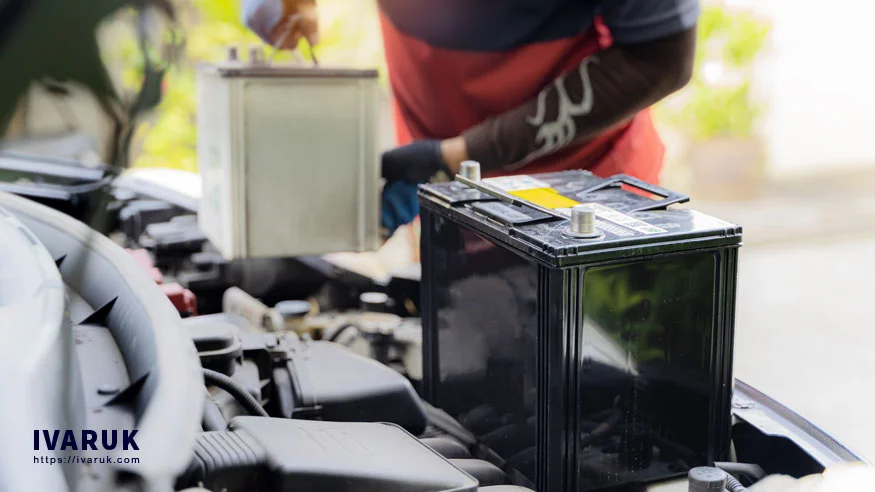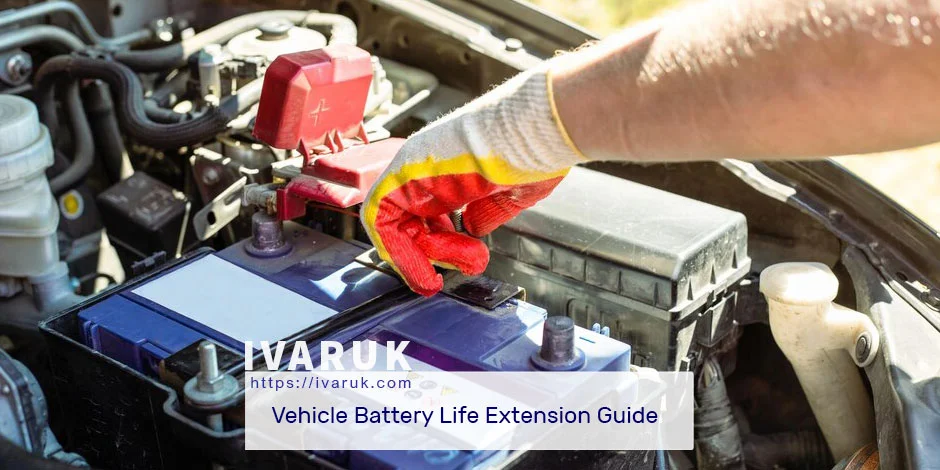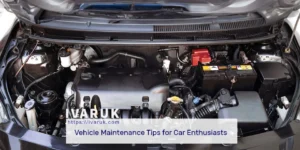Table of Contents
ToggleThe Ultimate Guide to Extending Battery Life
Car batteries are an essential part of our modern lives and provide the power required for our cars, trucks, motorcycles and other vehicles. However, they can also be expensive to replace, so it’s important to take steps to extend their lifespan.
In this blog post, we’ll provide you with a comprehensive guide on how to extend the life of your Car battery. We’ll cover everything from understanding the different types of car batteries to following best practices for battery maintenance To ensure your investment lasts longer, consider these essential tips:
Know Your Battery Types
Understand the three primary Car battery types:
- lead-acid
- lithium-ion
- nickel-metal hydride (NiMH)
Each type has its pros and cons. While lead-acid batteries are common, they have a shorter lifespan. Lithium-ion batteries last longer and offer greater energy density but come at a higher cost. NiMH batteries strike a balance between the two.
Factors Affecting Battery Life
Several factors can impact battery life, including temperature, usage patterns, and overcharging. Extreme temperatures can shorten a battery’s lifespan, so park your vehicle in a garage or shaded area when possible. Avoid running accessories when the engine is off, as this can drain the battery. Follow the manufacturer’s charging instructions to prevent overcharging.
Best Practices for Battery Maintenance
Maintain your car battery by keeping the terminals clean and free of corrosion. Regular cleaning with a wire brush and baking soda paste can help. Ensure the battery terminals are securely tightened, as loose terminals can cause overheating. Lastly, have your battery tested regularly by a qualified mechanic.
Charging Strategies for Maximum Longevity
Avoid Overcharging: Overcharging can damage your battery. Always adhere to the manufacturer’s charging guidelines.
Utilize a Trickle Charger: A trickle charger, a slow charging device, can maintain your battery when it’s not in use, extending its life.
- Battery Storage and Winter Care:
Store your car battery in a cool, dry place to avoid temperature-related damage. If storing for an extended period, charge it to 50% capacity to prevent sulfation.
- Recycling and Disposal:
Recycle your old batteries responsibly, as they contain hazardous materials. Most auto parts stores and recycling centers accept used batteries.
- Advanced Technologies for Battery Management:
Consider using a Battery Management System (BMS). A BMS can monitor and safeguard your battery, preventing overcharging, undercharging, and overheating.
Stuck with a dead battery? IVARUK’s got the solution! 🔋
From Car Battery Replacement to expert Jump Start Battery service, we’re your go-to for reliable and affordable assistance. With competitive prices and guaranteed services across the UK, we’ve got your back. Don’t wait, reach out now for a swift jump start and stress-free driving!
Common Car Battery Problems and Symptoms
- Dead Battery: This is the most common issue, often caused by leaving headlights on overnight, running accessories with the engine off, or a faulty alternator. Symptoms include the car not starting, dim headlights, or a dark dashboard.
- Corrosion at Battery Terminals: Corrosion can hinder electricity flow. Symptoms include a white or green powder buildup on terminals, starting issues, or dim headlights.
- Loose Battery Terminals: Loose terminals can prevent the battery from supplying power. Symptoms include difficulty starting, dim headlights, or a dark dashboard.
- Faulty Alternator: The alternator charges the battery while the car is running. A faulty alternator leads to a dead battery. Symptoms include the battery light on the dashboard, starting problems, or dimming headlights during driving.
- Old or Damaged Battery: All batteries wear out eventually. Symptoms include starting problems, dim headlights, or battery leakage.
Troubleshooting Car Battery Problems
Check the battery voltage with a multimeter. A healthy battery should read around 12.6 volts.
Inspect battery terminals for corrosion or looseness.
If the voltage is above 12 volts but the car still won’t start, check the starter and alternator. You can test the starter with a jumper cable, and the alternator’s voltage should read around 14 volts while the engine is running.
If you’re unsure how to troubleshoot or repair car battery problems, consult a qualified mechanic.

Tips for Preventing Car Battery Problems
- Keep the battery clean and corrosion-free.
- Ensure properly tightened battery terminals.
- Avoid leaving headlights on overnight or running accessories without the engine running.
- Regularly test your battery with professional guidance.
- Replace your battery every 3-5 years or sooner if needed.
By adhering to these tips, you can ensure your vehicle’s battery remains in optimal condition, always ready to start your car when you need it.
Unlock the Secret to Long-Lasting Car Batteries!
At IVARUK, we’ve got you covered for all your car battery needs. Our comprehensive Car Battery Life Extension Guide will help you maximize your battery’s lifespan.
When it’s time for a replacement, we’ve got that covered too! Our competitive prices and guaranteed services make IVARUK your go-to choice for car battery replacement in the UK. Don’t wait, contact us today for worry-free driving!
Interesting Fact
The first car battery, a lead-acid type, was invented in 1859 by Gaston Plante. Surprisingly, this technology still serves as the foundation for most car batteries today.
Did you know?
Storing your car battery in a cool, dry place when not in use can help extend its lifespan.
When It’s Time for a Car Battery Replacement
Your car battery is the unsung hero, quietly energizing your vehicle day in and day out. But even the mightiest batteries have a lifespan, and when the day comes for a car battery replacement, it’s crucial to be prepared.
Signs It’s Time:
Car batteries typically last between 3 to 5 years, but various factors can influence their longevity. Keep an eye out for signs that your battery may be nearing the end of its life:
- Slow Engine Crank: If you notice your engine takes longer to start, it’s a clear sign that your battery might be losing its strength.
- Warning Lights: Modern vehicles often have battery warning lights on the dashboard. If this light illuminates, it’s time to pay attention.
- Electrical Issues: Strange electrical issues, such as dimming headlights or flickering dashboard lights, can signal a failing battery.
- Old Age: If your battery has served you faithfully for over five years, it’s wise to consider a replacement.
Choosing the Right Battery:
When selecting a new battery, consider these key factors:
- Battery Type: Decide between lead-acid, lithium-ion, and nickel-metal hydride (NiMH) based on your needs and budget.
- Battery Size: Ensure the replacement battery is the correct size and capacity for your vehicle. Refer to your owner’s manual for guidance.
- Cold-Cranking Amps (CCA): Match the CCA rating to your climate. Higher CCA is essential for cold weather starts.
Feel free to connect with IVARUK on Instagram and Facebook. We’d be delighted to have you as part of our online community!




